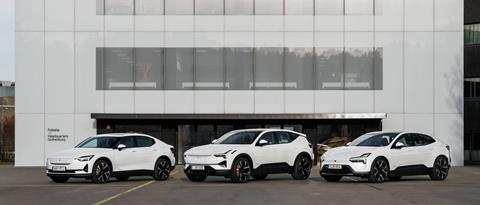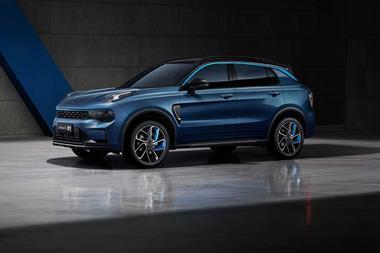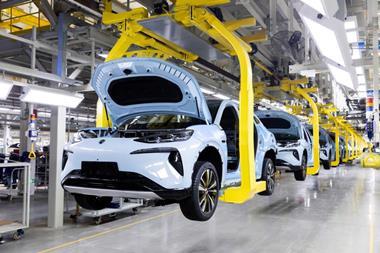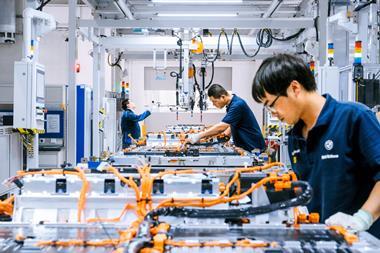Polestar aims to hit profitability by 2025 with Polestar 7 to be built in Europe, exiting China in regionalisation move enhancing supply chain resilience. The carmaker’s strategy includes streamlined product lines eyeing growth targets for premium EV market.

Swedish EV maker, Polestar, has announced plans to produce its incoming premium compact SUV, the Polestar 7 in Europe. The move represents a clear strategic shift away from its reliance on Chinese automotive manufacturing and aligns with increasing trends among automotive producers towards localisation and nearshoring to counter tariffs and supply chain complexities.
As part of this broader regionalisation strategy, Polestar is also expanding its production footprint in the US and South Korea. Polestar vehicles are already being produced at Volvo’s facility in the US, and production in South Korea will begin in the coming years. These developments are critical to the company’s approach to diversifying production and enhancing supply chain resilience.
The move is part of Polestar’s broader roadmap to achieve profitability by 2025. Key elements of the plan include a compound annual retail sales volume growth of 30% to 35% through 2027, a positive adjusted EBITDA by 2025, and positive free cash flow after investments by 2027.

Michael Lohscheller, Polestar’s CEO, expressed optimism about the company’s trajectory, noting that bold changes are necessary for long-term success:
“We are building on the strong Polestar brand with design and performance at its core.
”But significant changes are needed to make this well-respected progressive brand a successful and viable business,” he said. “Both in terms of volumes and financials, we expect 2025 to be the strongest year in Polestar’s history.”
Polestar’s European localisation strategy and the Polestar 7
The Polestar 7, slated for production in the second half of 2025, represents Polestar’s entry into the highly competitive and profitable compact SUV segment. Its European production signals a pivot towards localised manufacturing to reduce costs, simplify supply chains, and address regional market dynamics. While the exact location has not been confirmed, Volvo’s Ghent plant, which begins producing the EX30 this year, is a likely - though as yet unconfimed - candidate to share capacity and supply chain infrastructure.
”Geely will continue to support Polestar’s development and strategy implementation”
- Daniel Donghui Li, CEO of Geely Holding Group and Polestar Board Member
Philipp Römers, Head of Design at Polestar, highlighted the importance of the new model in the company’s portfolio. “Polestar is known for its progressive design, with each car standing out and creating its own buzz – so too will Polestar 7. It is incredibly exciting to bring Polestar’s design ethos to a new segment,” he said.
The Polestar 7’s European production aligns with the company’s broader aim to consolidate its platforms. From this model onwards, Polestar plans to transition to a single architecture, reducing complexity and costs while enhancing scalability.
Polestar’s retail and market expansion capitalises on EV growth
Polestar is also accelerating its retail footprint, aiming to expand its retail spaces by 75 % by 2026. The company will grow from 70 to 130 retail spaces in Europe, and from 36 to 57 in North America, while maintaining its direct-to-consumer online sales channel. France, one of Europe’s largest and fastest-growing EV markets, will see Polestar’s retail launch this year. Plans for expansion into Eastern Europe, Asia, and Latin America are scheduled for 2026.
The company’s retail momentum is already evident, with Q4 2024 sales increasing by 5.3 % year-on-year and order intake growing by 37.2 %. Polestar’s Polestar 3 and Polestar 4 models accounted for 56 % of order intake during this period.

Daniel Donghui Li, CEO of Geely Holding Group and Polestar Board Member, reiterated Geely’s commitment to the brand’s transformation. “Geely will continue to support Polestar’s development and strategy implementation, including working with Polestar to secure additional equity and debt funding,” he said. “Polestar remains an important global asset for Geely and the new leadership team is taking the right actions to transform it from an iconic brand into a successful global business.”
Read more Polestar stories
- Expanding production operations for the fully-electric Polestar 4 in South Korea
- Polestar starts US production of the Polestar 3
- Chinese vehicle makers look to international markets for growth
- Tier suppliers – Adapting to new challenges
Polestar’s expanding product portfolio and global EV production ambitions
Polestar’s product lineup will expand significantly in the coming years. The Polestar 5, a performance four-seat grand-tourer built on an in-house bonded-aluminium platform, is set for launch in 2025. This will be Polestar’s first vehicle to feature 800-volt technology, reflecting the company’s commitment to innovation and high performance.
With its expanding portfolio and strengthened global manufacturing network, Polestar is readying to position itself as a key player in the premium EV segment. The company’s asset-light business model—leveraging manufacturing partnerships and shared platforms—continues to be central to its strategy.






































No comments yet